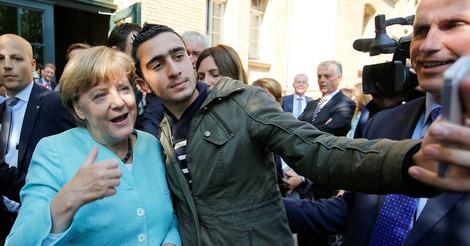Your podcast discovery platform
Curious minds select the most fascinating podcasts from around the world. Discover hand-piqd audio recommendations on your favorite topics.

piqer for: Global finds Technology and society
Prague-based media development worker from Poland with a journalistic background. Previously worked on digital issues in Brussels. Piqs about digital issues, digital rights, data protection, new trends in journalism and anything else that grabs my attention.
Battle with Fake News: Syrian Refugee Sues Facebook
On 10 September 2015, teenage Syrian refugee Anas Modamani took a selfie with Chancelor Merkel during her visit to a refugee shelter in Berlin. Little did he know that this seemingly innocuous act would put him on the spotlight for months to come.
As explained by the New York Times (NYT), since its publication the photo has been repeatedly used alongside defamatory news reports linking Modamani to terrorism and criminal activities. Through the erroneous use of the photo, he's been linked to the March 2016 terrorist attacks in Brussels, the Berlin Christmas market attack in December 2016, and a recent assault in which a homeless man was set on fire in Berlin.
In order to push against the spiral of defamation, Modamani filed a lawsuit in the southern German city of Würzburg, in which he called on Facebook to remove any content associating him with terrorism. “Not everyone believes that. Many people hate me, but all I did was take a selfie with Ms Merkel," the NYT quotes Modamani.
This article shows a personal battle over fake news, defamation and spread of incendiary and hateful material. The issue is much bigger than Modamani's selfie, though, and the NYT realises that. It is a landmark case in the ongoing German effort to make the internet companies liable for the content they publish.
As the NYT states, it "highlights several basic legal questions, such as who is responsible for content posted by anonymous sources and whether people who repost text they did not write, or an image that someone else altered, can be held responsible for defamation". All these are relevant not only for Germany, but for any other nation that struggles with fake news and misinformation online.
